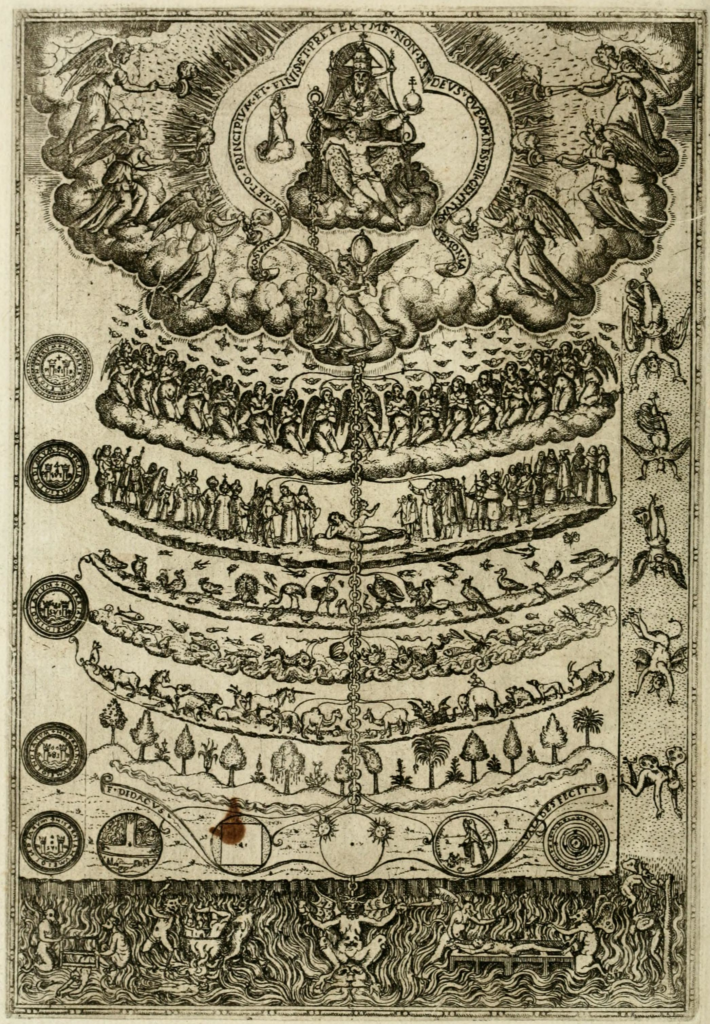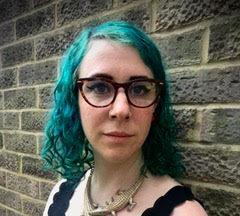
One of the dominant continental philosophical myths or narratives about modernity is that it emerges as a process of disenchantment, of the disappearance of magic and mystery from the world. But such narratives rarely explore the relationship between what is described as disenchantment and the beginning of racial chattel slavery and European colonialism. I want to suggest that the work of Sylvia Wynter might help us better understand the interplay of modernity, disenchantment, secularization, and the invention of race.
The notion that the advent of modernity marks the beginning of a process of disenchantment is commonly attributed to Weber, but has very old roots in Western thought. This includes, as Jason Josephson-Storm has recently argued, European folk and fairy tales, which, as far back as Chaucer, were mourning the passing of the age of magic. For Sylvia Wynter, this process of disenchantment—or, as she sometimes refers to it, “degodding”—is the result of an epochal shift in the “genre of the human” in the West, the fundamental schema which organized Christian social life. What happened at the advent of modernity, Wynter argues, was that what she calls the “Christian” genre of the human gave way to what she calls “Man1.” Under this new “descriptive statement,” rather than being defined primarily as the religious subject of the church, the archetypal human came to be defined primarily as the political subject of the state. Where the human-as-Christian was defined in opposition to heretics, infidels, and lepers, the human-as-Man1—sinful and excluded from participation in the church—was instead defined in opposition to indigenous and Black people, who were seen as irrational and savage, and therefore excluded from citizenship. Where the world configured by the human-as-Christian concept was organized by proximity to the church and therefore by degrees of spiritual perfection, the world configured by the human-as-Man1 was organized by participation in and extension of the state. Wynter says that this transformation of the genre of human represents the “first degodded … ‘descriptive statement’ of the human in history” (266). She argues that by releasing the physical world from its primary relationship to God, it became possible to know it as it was in itself, rather than as it was in relation to human beings and as a reflection of the hierarchical values of the society which examined it.
Here Wynter’s account echoes that of Charles Taylor‘s, for whom the disenchantment which marked the birth of modernity meant a new separation of the self from the rest of the universe and the loss of the sense that moral forces exist outside of human beings in the physical world around us. For both, this separation is connected to the flourishing of the natural sciences. For Wynter though, what happens is not simply the loss of any sense of the broader universe as the mirror of human societies, but the transposition of the key distinctions between good and evil from the physical world to biology—from a belief in the separation of the earth into earthly and heavenly, habitable and inhabitable, to a belief in the separation of humankind into rational and irrational, citizens and slaves. This shift is in turn followed in the 18th and 19thcenturies by a second “degodding,” or secularizing, move in which Man1 became Man2. Where Man1, defined by possession of God-given rationality, was only partially secularized, Man2, defined by evolutionary success, is fully secularized. Man2 is defined without relation to God but instead defined solely by reference to nature and to biology. Wynter repeatedly describes these shifts in terms of disenchantment—as processes of “desupernaturalizing,” of “degodding.”
I want to suggest that it’s not so much that God became less capricious, less sovereign, as it is that European men became more sovereign, precisely insofar as they—as kings, reformers, explorers, or property-owners—appropriated for themselves sovereignty which had previously belonged only to God.
What Wynter’s work suggests is that the process of disenchantment is related to the transfer of sovereignty from God (implicitly, the Church) to the king-as-sovereign (implicitly the State). Wynter suggests that one of the limitations of the medieval European order was its insistence on God’s absolute sovereignty, and therefore God’s absolute ability to intervene at random and change the laws of nature. The modern transformation of nature from an order held together by the will—and therefore also the caprice—of God into a more regularized and rule-bound order which could be mapped and travelled (that is, Wynter’s shift from Christian to Man1 as the genre of the human), was made possible by the emergence of a new, humanist understanding of the relationship between natural man and the Christian God. On this account, God had created the universe specifically for humankind, such that its laws were “rational” and “nonarbitrary.” But I want to suggest that it’s not so much that God became less capricious, less sovereign, as it is that European men became more sovereign, precisely insofar as they—as kings, reformers, explorers, or property-owners—appropriated for themselves sovereignty which had previously belonged only to God. What we see from this period onward is the transposition of characteristics previously attributed to God onto human beings. The Great Chain of Being so beloved of medieval theologians placed man-as-Christian firmly in his place, a little higher than the beasts and a little lower than the angels, bound firmly in place below God by the chains of the created order. But with the birth of modernity, this structure began to mutate. For Hobbes it was the sovereign of the nation state who acts as the lynchpin. For Descartes, God was reduced to the link which holds together the sovereign individual subject with the ordered universe. And for Kant, the categorical division of the world was effected solely by the individual mind. As sovereignty is transposed from God to the sovereign human being, so too the ordering of the universe comes to be in the hands of the sovereign figure of Man.
Where Wynter sees this process as one of a de-humanizing of the physical world such that nature is liberated from its spiritual meaning, I think we might instead see it as something more like a deifying of the secular state, such that nature is subjected not to the free and gratuitous will of God, but to the free and arbitrary will of human beings, whose sovereignty comes to be defined ever more in terms of ownership of private property. What are the papal decrees which divide the whole inhabited world into the property of nascent European states if not the appropriation of the divine power to create by dividing? How else are we to account for the mania for classification and division which accompanied the emergence of new and previously unimaginable violent powers of property-owning human beings over the people and lands which were thus newly created as property, or for the inexpressible violence of the newly invented private sphere, the nation, the colony and—above all—the plantation? What disenchantment tracks, I am suggesting, is the shifting role of religion, the state, and the natural sciences in organizing both law and sovereignty.
Taking seriously Wynter’s account of the entanglement of disenchantment with epochal shifts in the genres of the human begins to suggest, then, that disenchantment is not so much about the disappearance of magic and mystery so much as their transformation. It is about the violent destruction of old social and metaphysical bonds which tied people to one another and to the world around them in order to bind them to new masters who were appropriating for themselves both legal and sovereign power—to nation states and European citizens, which is to say, to slavers and colonizers.


Could it be that the transformation of mystery and magic stems from an even more fundamental conundrum than the shift in Europe’s modes of provisioning, namely a notion of God linked to a division between good and evil?
“The stories that define our thinking today describe an eternal battle between good and evil springing from an originating act of sin. But these terms are just metaphors for something more difficult to explain, a relatively recent demand that simplicity and order be imposed upon the complexity of creation, a demand sprouting from an ancient seed of narcissism that has flourished due to a new imbalance in human societies.” Yunkaporta, Tyson. Sand Talk. p3
I love these discussions. But all I could think about was the deification of Roman Empire emperors, and the decades just before Jesus. I think that looking in other cultures as well we will find that there are multiple ways of understanding the stewardship of power among human beings. There is nothing new under the sun when it comes to how we order ourselves. But it’s sure wonderful to talk about all of them. Thank you so much.